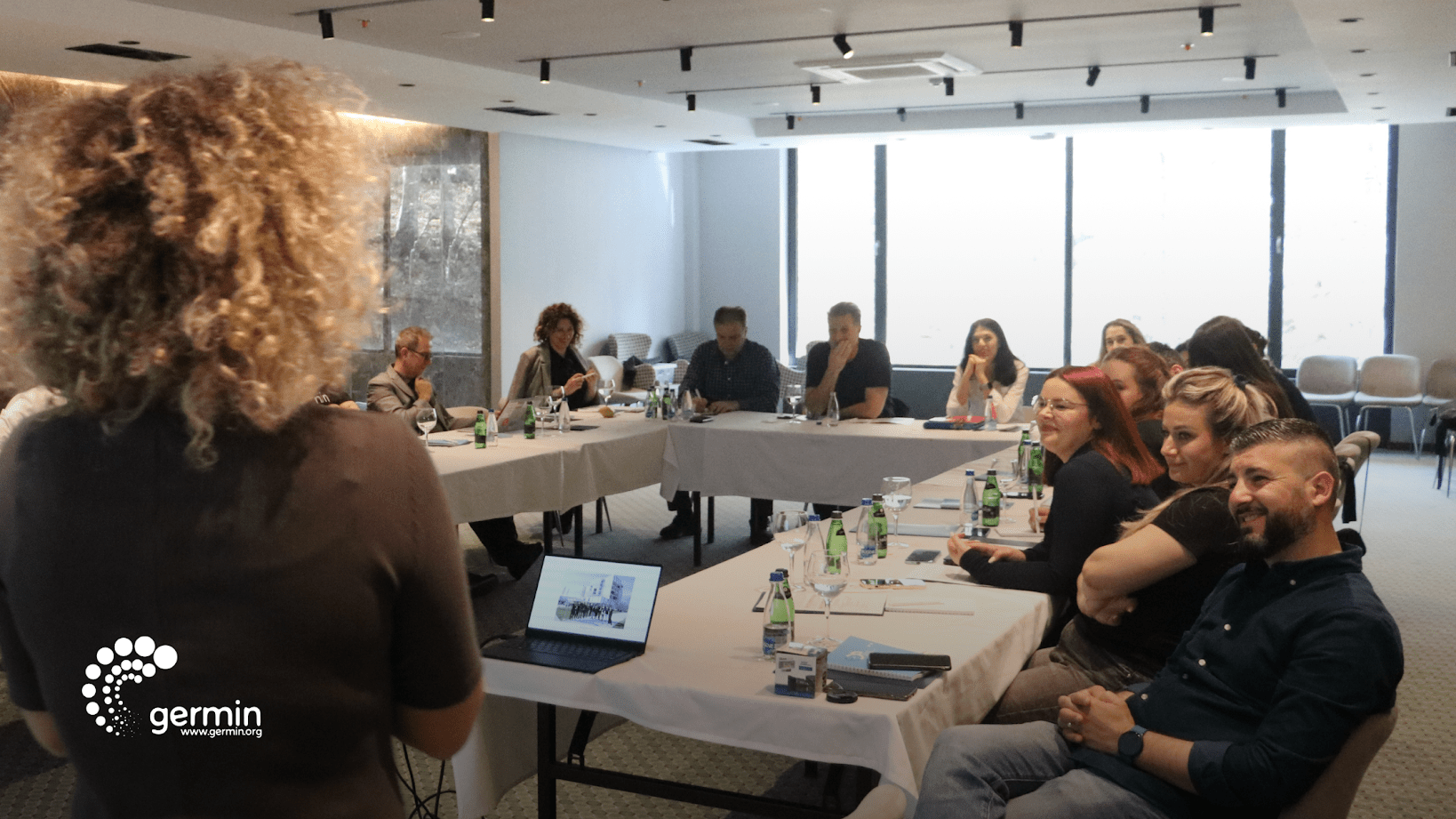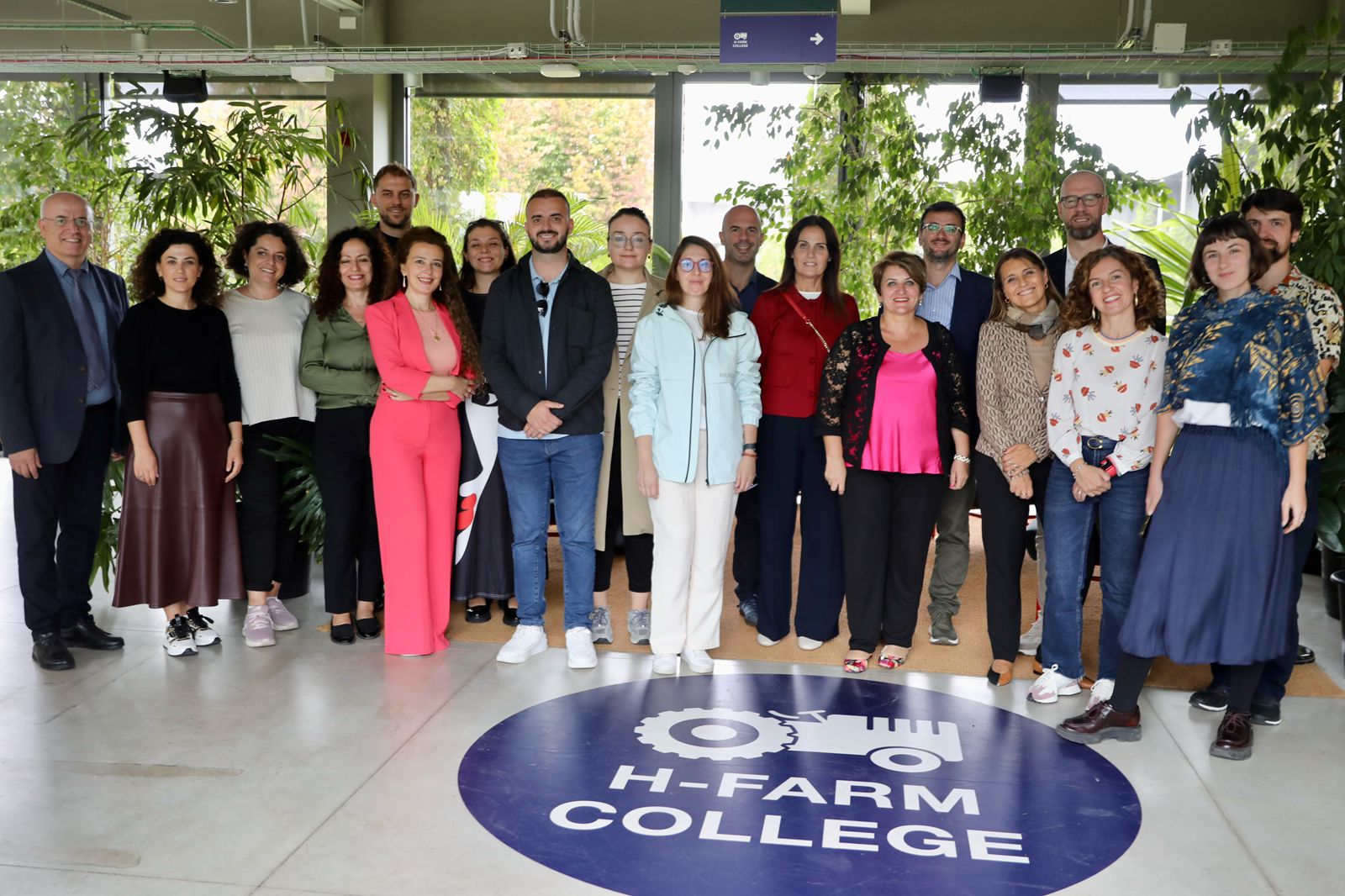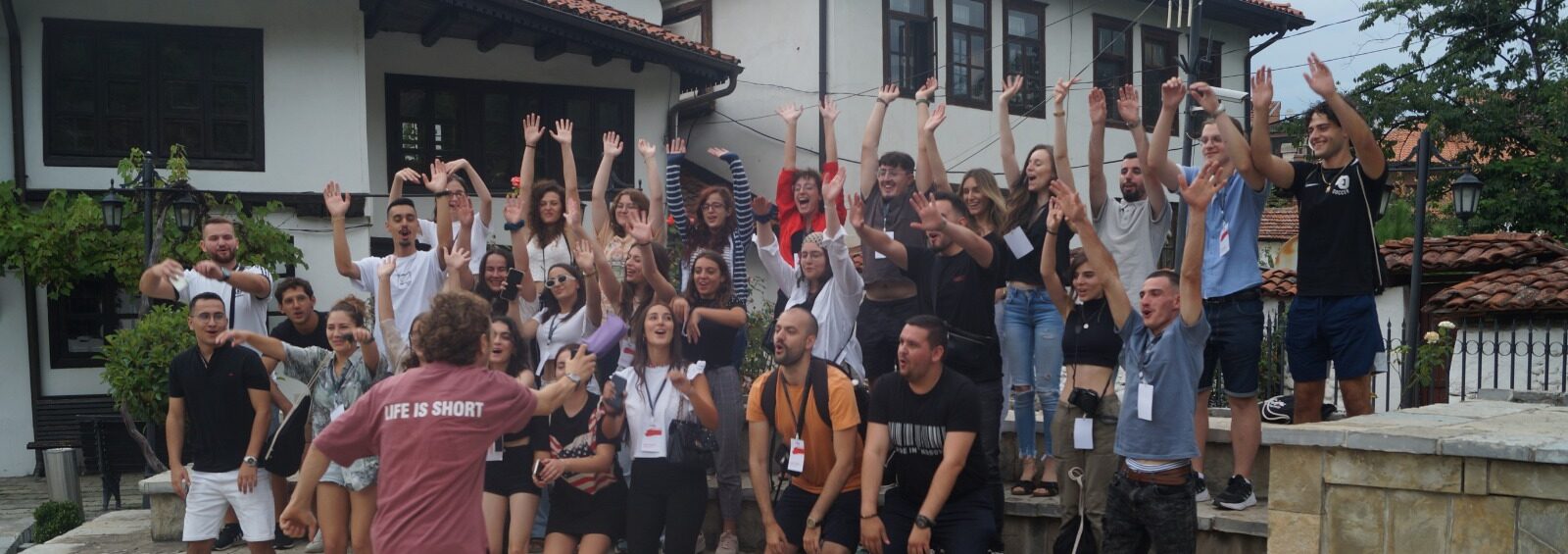Germin’s two-day strategic workshop with the board and staff aimed at refining the organization’s strategic goals for the next four years.
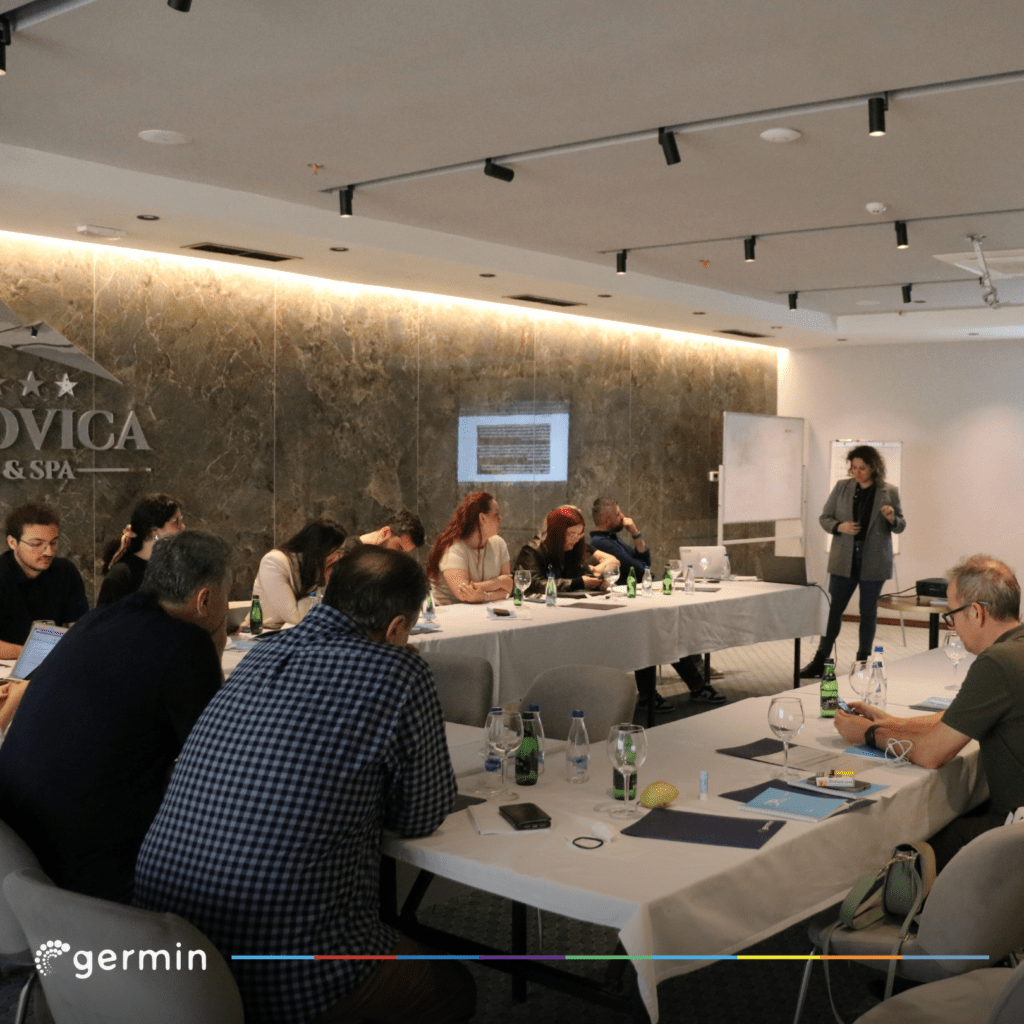
Through discussions, group work, and diverse activities, the GERMIN staff and Board of Directors collaboratively reviewed successes, lessons learned, and plans for the organization’s sustainable growth in the next four years. The team assessed the work of the past years and discussed key potentials for the future.
During this workshop, Germin Board members: Anila Hyka Smorgrav from France, Avni Mustafaj from the USA, Anita Gjidoda from the Netherlands, Hilmi Gashi from Switzerland, together with the team members exchanged and shared their ideas and perspectives on several key issues:
- Further improvement of work, organization and activities of GERMIN;
- Advancing working conditions and rules within the organization
- Ensuring the financial sustainability of GERMIN;
- Increasing GERMIN’s influence and cooperation with partners, shareholders, and our primary audience, the diaspora.
The entire workshop was facilitated by Lenhard Hamza, who has been engaged for two years as an integrated expert in the organization, and has a closer look and perspective on Germin’s work and diaspora engagement.
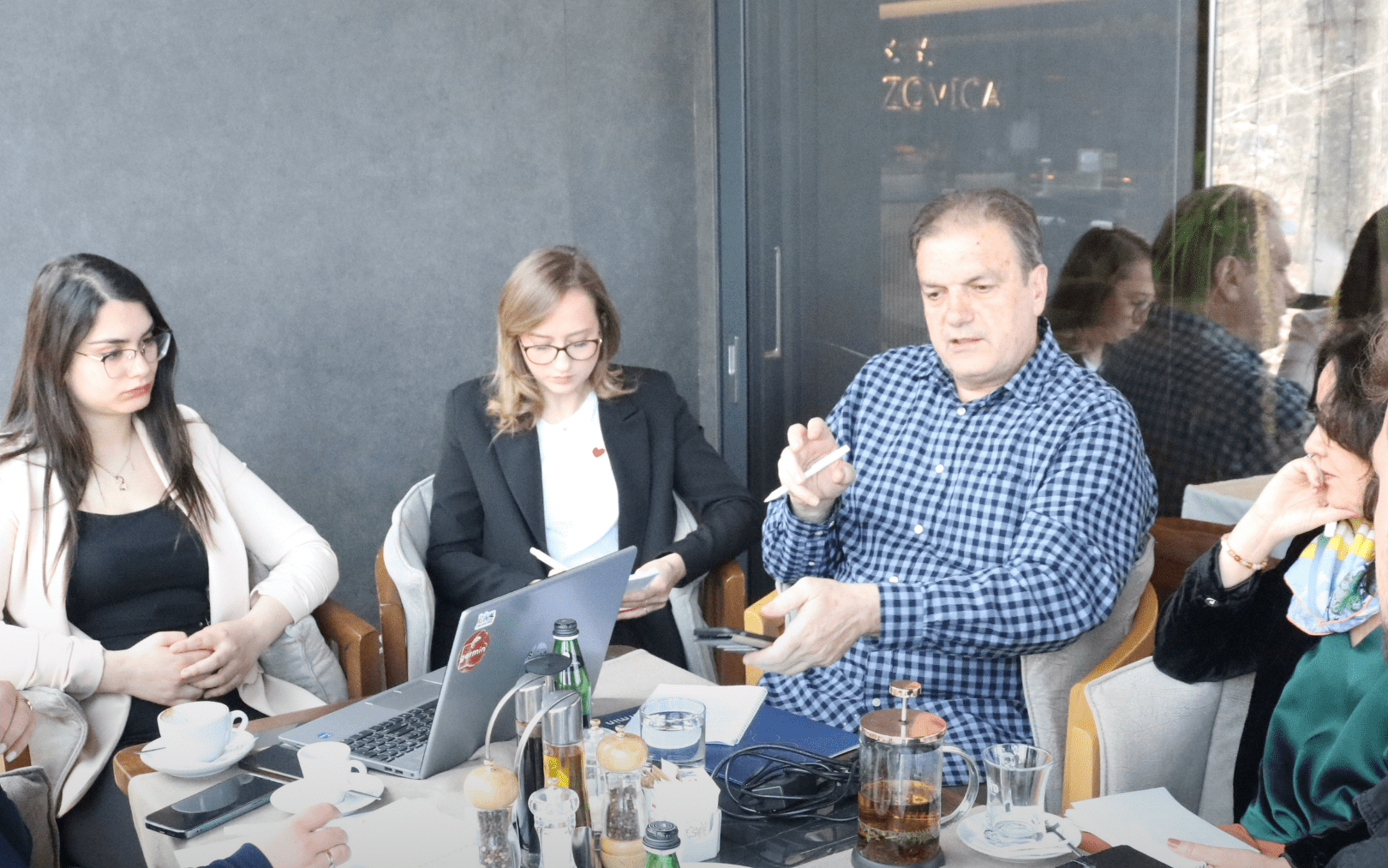
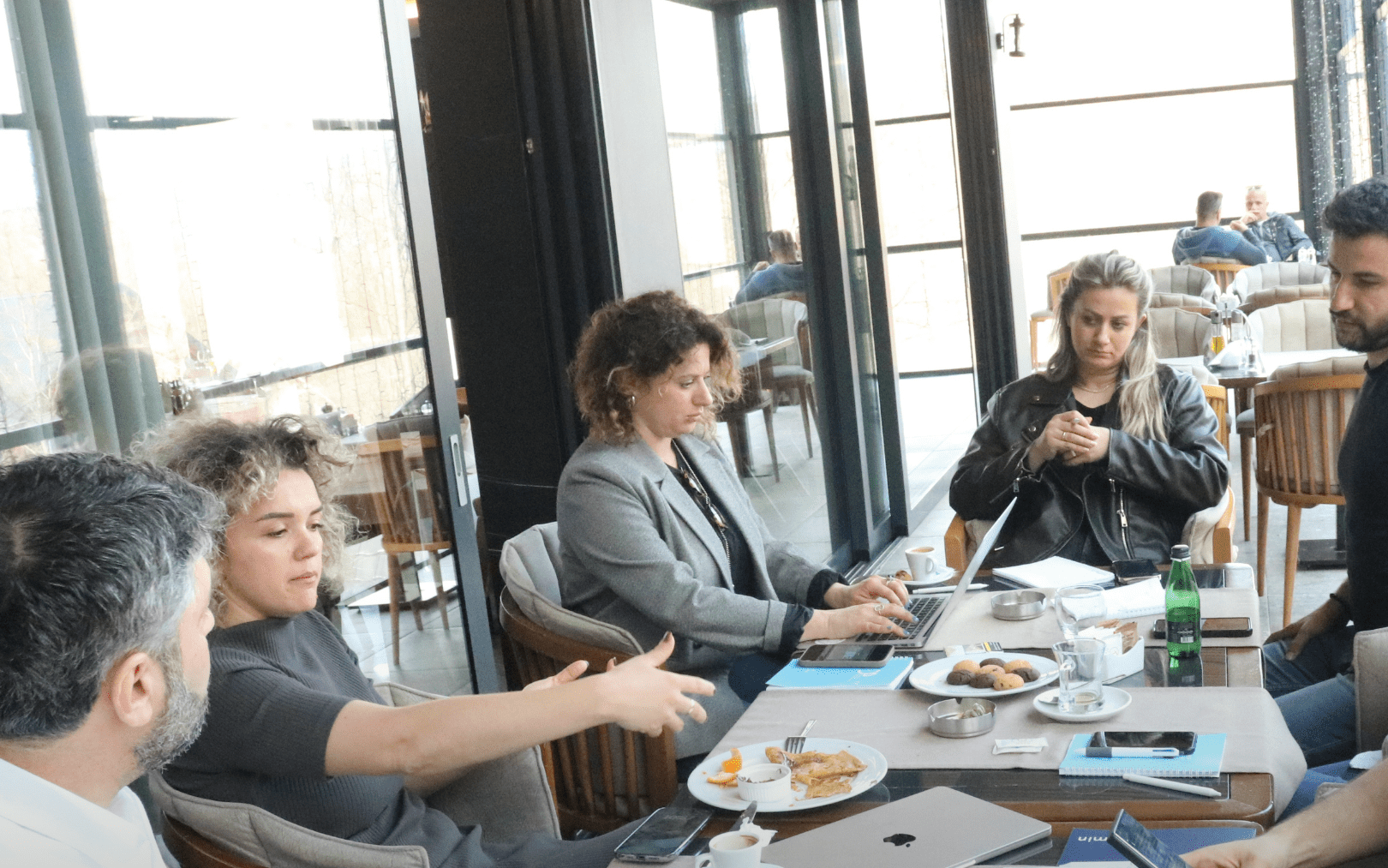
The first presentations made by GERMIN’s Co-Executive Directors, Sihana Bejtullahu and Lirim Krasniqi, showcased the results and impact of GERMIN’s work over the past four years.
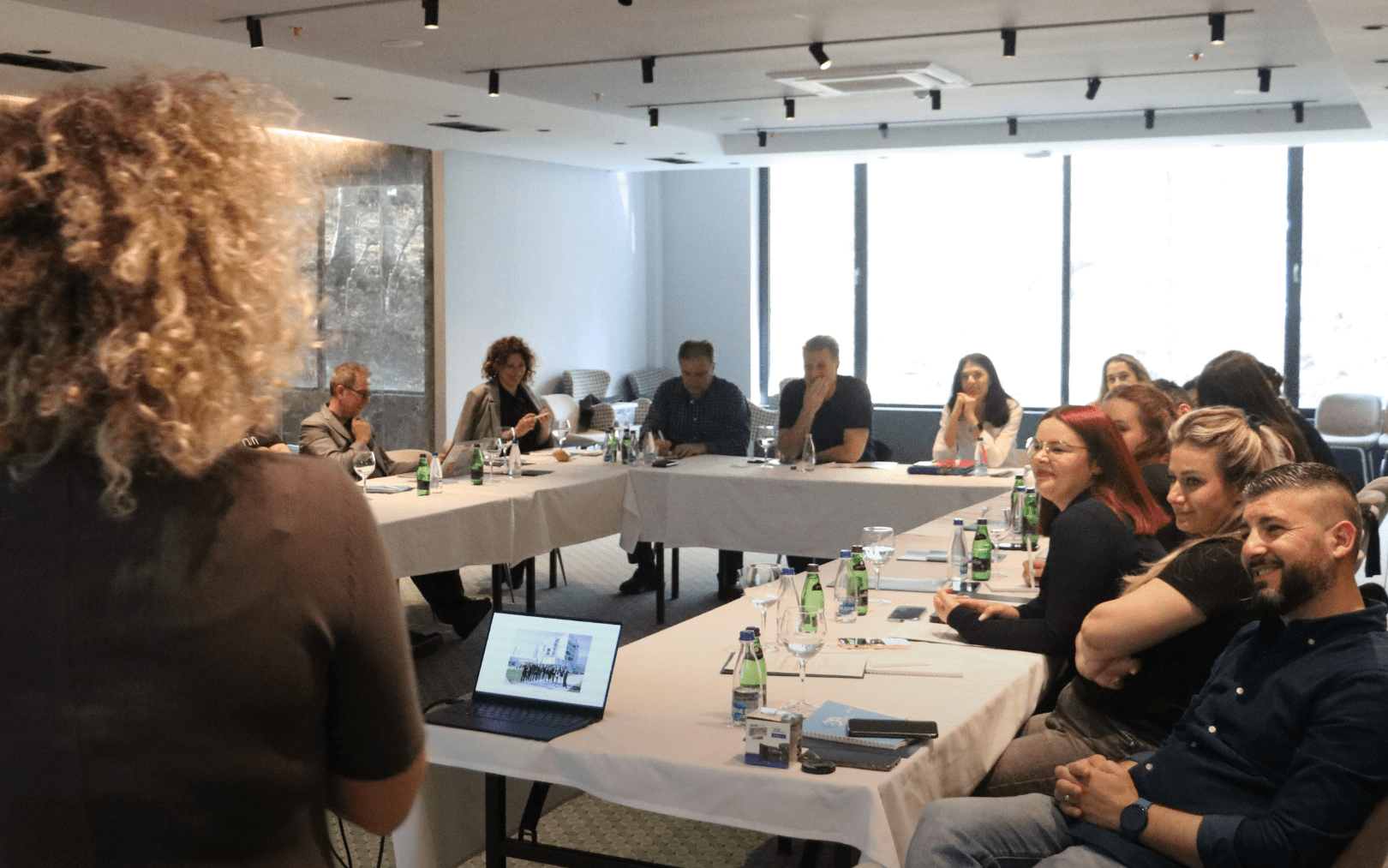
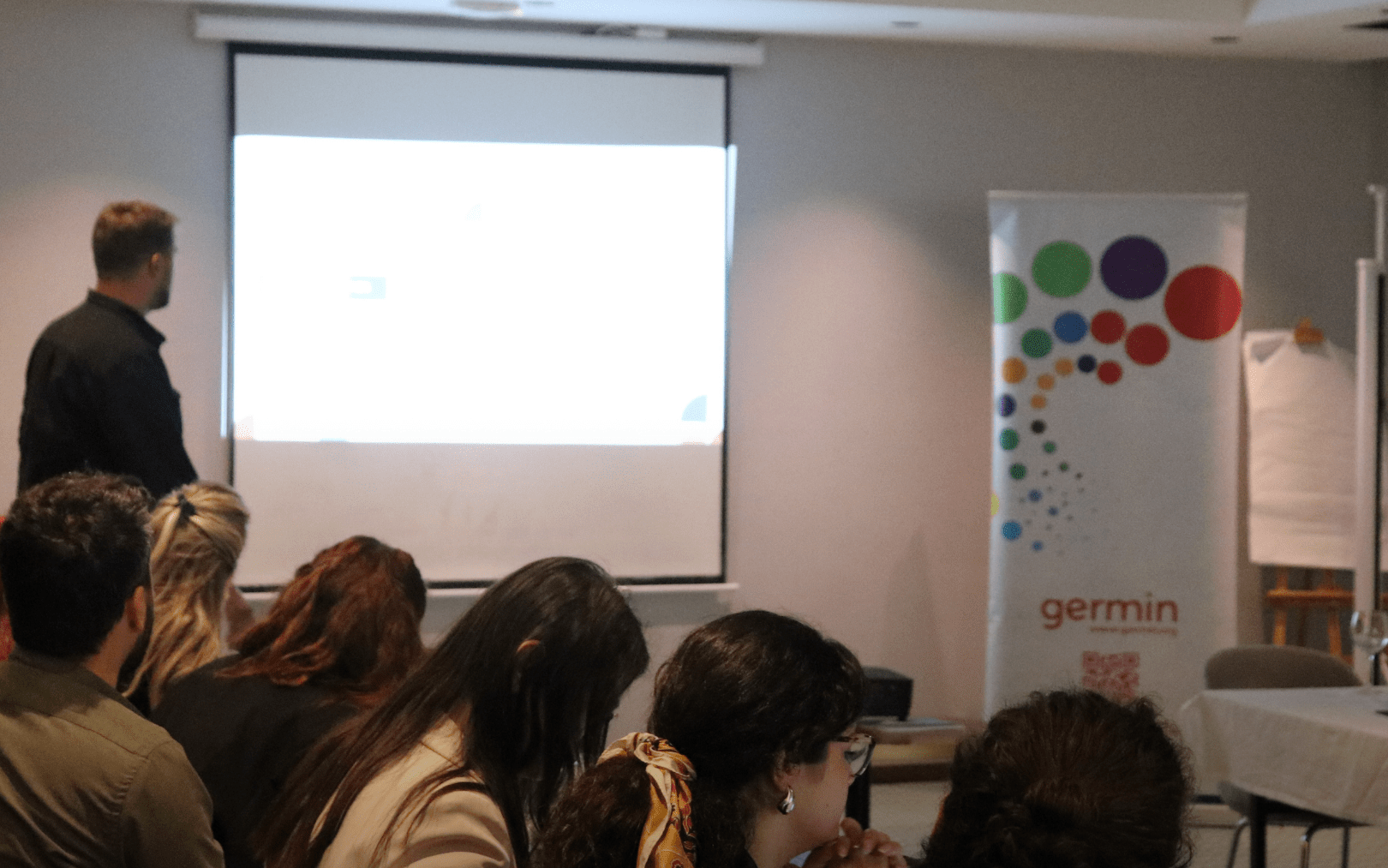
Vartan Marashlyan, Co-Founder and Executive Director of the ‘Repat Armenia‘ Foundation, a non-governmental and non-profit institution from Armenia, also participated in the two-day workshop.
During his presentation sessions, Marashlyan presented his proposals for diversifying the organization’s funds to the board. He detailed the strategies and paths that led to the success of the foundation he currently leads. Simultaneously, he offered advice to GERMIN to create the mechanisms for a sustainable growth.
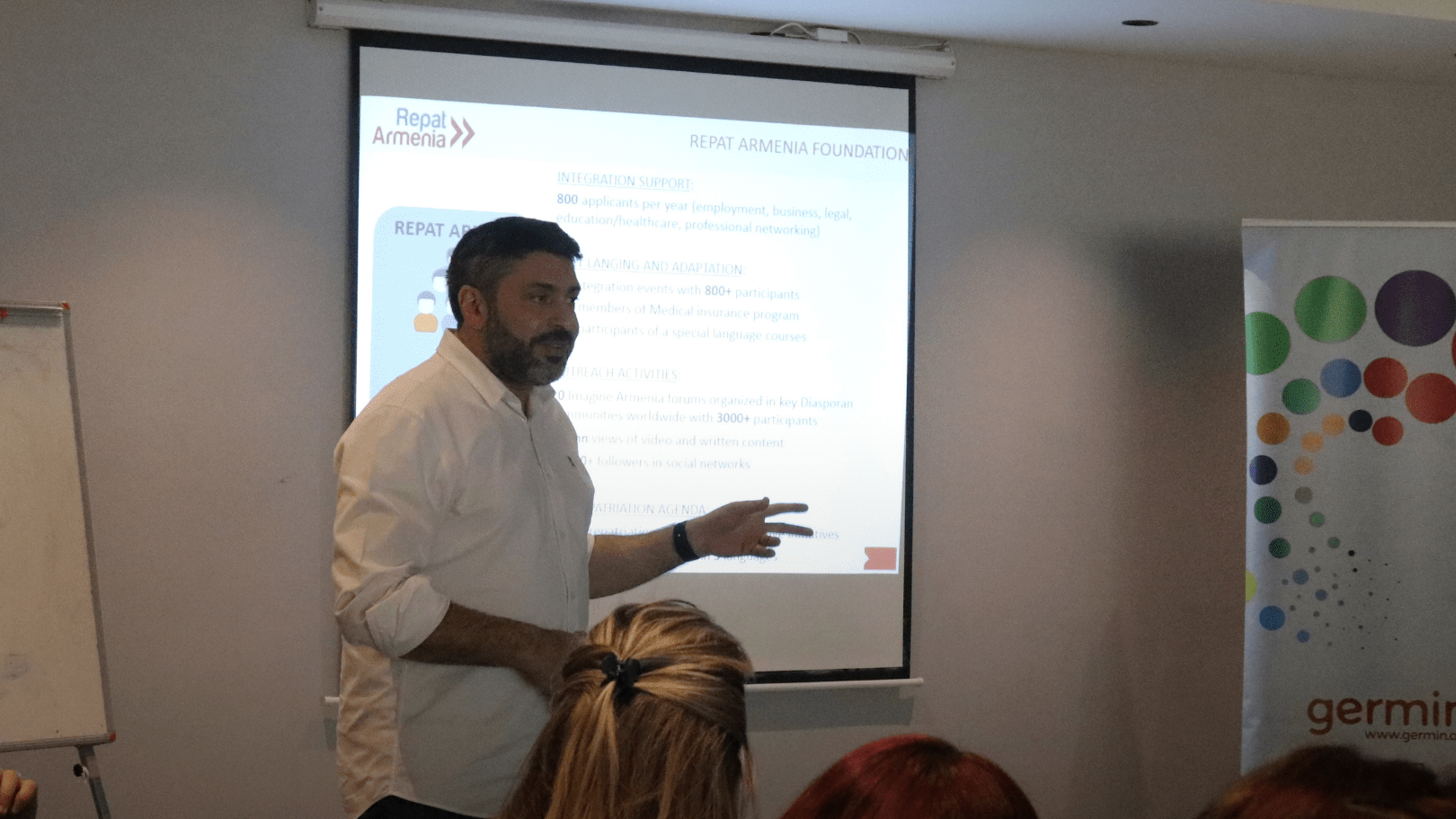
The sessions also featured presentations on GERMIN’s current projects and their key outcomes.
Blerta Mexhuani, Project Manager at GERMIN, informed attendees about the Engaging Diaspora Professionals (EDP) platform. This initiative aims to establish a comprehensive database of diaspora professionals and actively facilitate their connections with institutions, businesses, and organizations in Kosovo and Albania.
Mexhuani next presented the ‘Peer-to-Peer Diaspora Mentorship’ project, where GERMIN connects diaspora professionals with leaders and members of the Sectoral Workforce Councils in the Wood Processing, Agribusiness, and ICT sectors through a virtual mentoring program. This initiative has delivered valuable knowledge and recommendations that contribute to the development of these sectors in Kosovo.
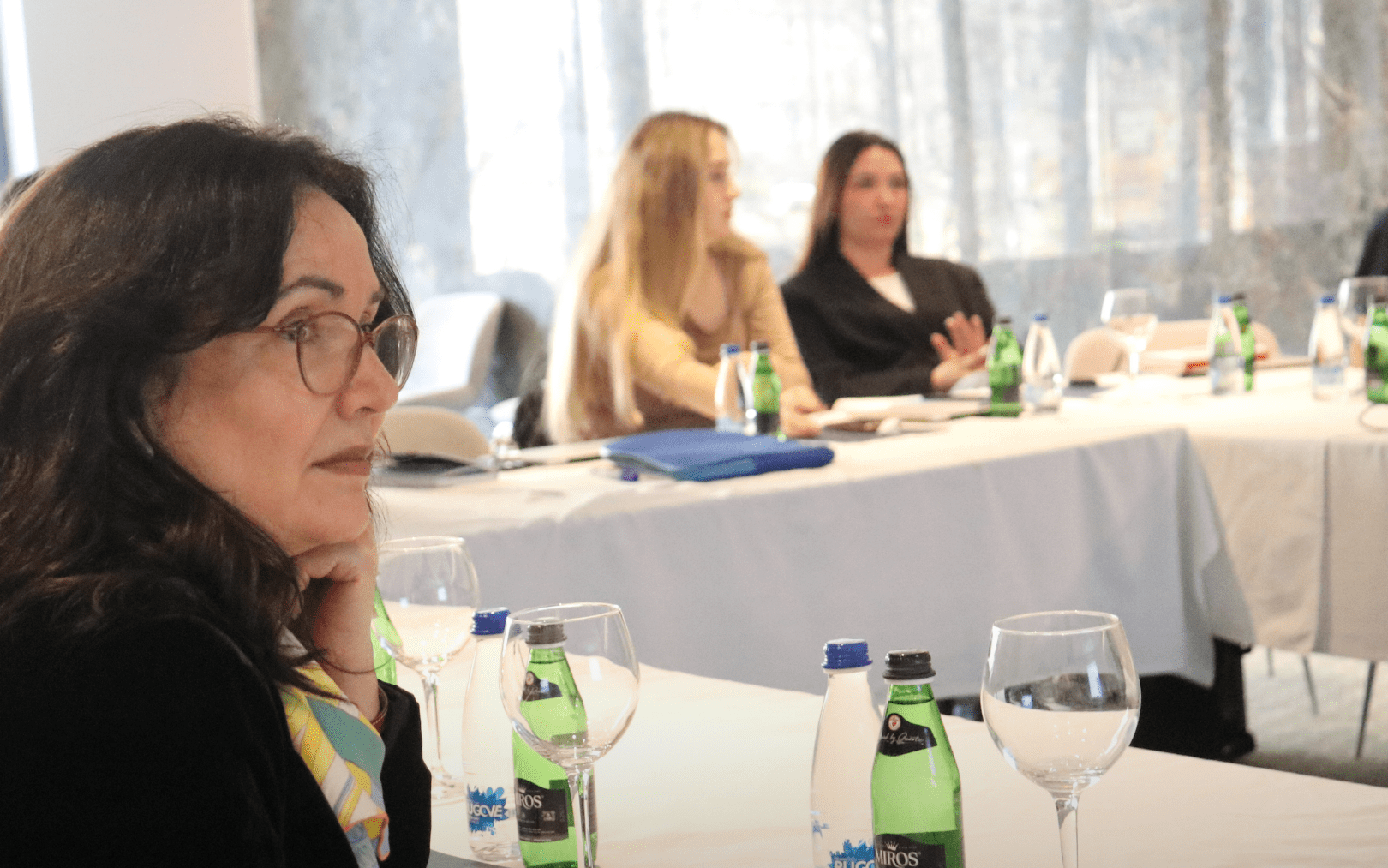
Blerinë Ukshini, Project Manager at GERMIN, presented the ‘Diaspora for Women in Politics‘ project, which aims to strengthen the position of women in politics at the local level in Kosovo.
Ukshini emphasized the key activities planned for the ‘Diaspora for Women in Politics’ project, which are designed to enhance inter-party cooperation in Kosovo. These activities include mentorship from diaspora mentors, thematic training sessions, Agora-style discussions, drafting of policy summaries with actionable recommendations, and the involvement of diaspora professionals in Municipal Offices for Gender Equality.
She also presented the project ‘Diaspora Engagement for the Advancement of Politics in Kosovo‘ whose primary goal is to improve the policy-making processes in Kosovo through the optimization of the contributions of the diaspora.
Ukshini elaborated on the core activities through which GERMIN intends to achieve the project’s goals. These include hosting six Agora discussions in the diaspora, engaging diaspora professionals within the Ministry of Foreign Affairs and Diaspora and the Parliamentary Committee on Labor of Foreign Affairs and Diaspora, ongoing advocacy efforts, organizing thematic virtual meetings with diaspora members, and drafting recommendations for institutions based on the discussions held.
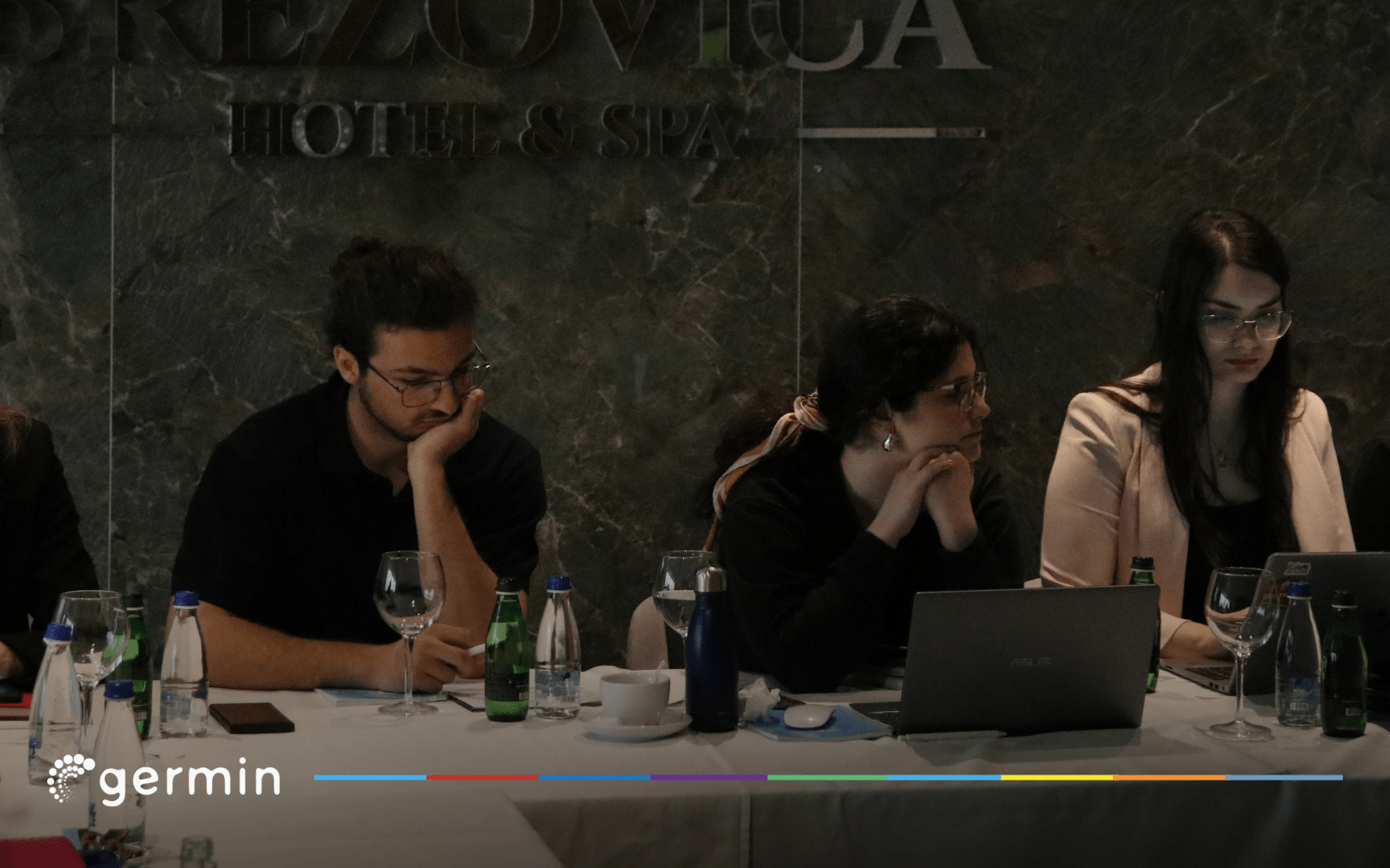
The presentations also highlighted GERMIN’s efforts in engaging and encouraging the Albanian Diaspora youth through the “OriginAL” program. This initiative is a collaborative project between GERMIN and the Global Albanians Foundation, aimed at achieving effective integration of young Albanians living abroad.
Since its inception in 2022, the OriginAL program has been offering an educational-cultural tour for young Albanians of the diaspora, a practice that continues to this day. This tour includes volunteer experiences and aims to inspire participants to explore and connect with their ancestral roots.
Naim Robelli, the OriginAL Project Manager, presented the program’s objectives, its achievements to date, its reach, participants’ feedback, encountered challenges, the need for growth, and future plans for expansion and increased engagement. He emphasized that it is important that this experience offered by GERMIN through OriginAL to the Albanian youth of the diaspora should be continued after the project with other activities that would keep the youth engaged in their country of origin. In this aspect, he revealed the plan for the engagement of OriginAL alumni in this year’s activities and the creation of OriginAL ambassadors around the world.
A key focus of the workshop was on fundraising strategies. Mark Kosmo, chairman of the Global Albanian Foundation, participated in a discussion with workshop participants about effective methods for short-term fundraising and the development of long-term strategies that would ensure sustainable funding for OriginAL and GERMIN overall.
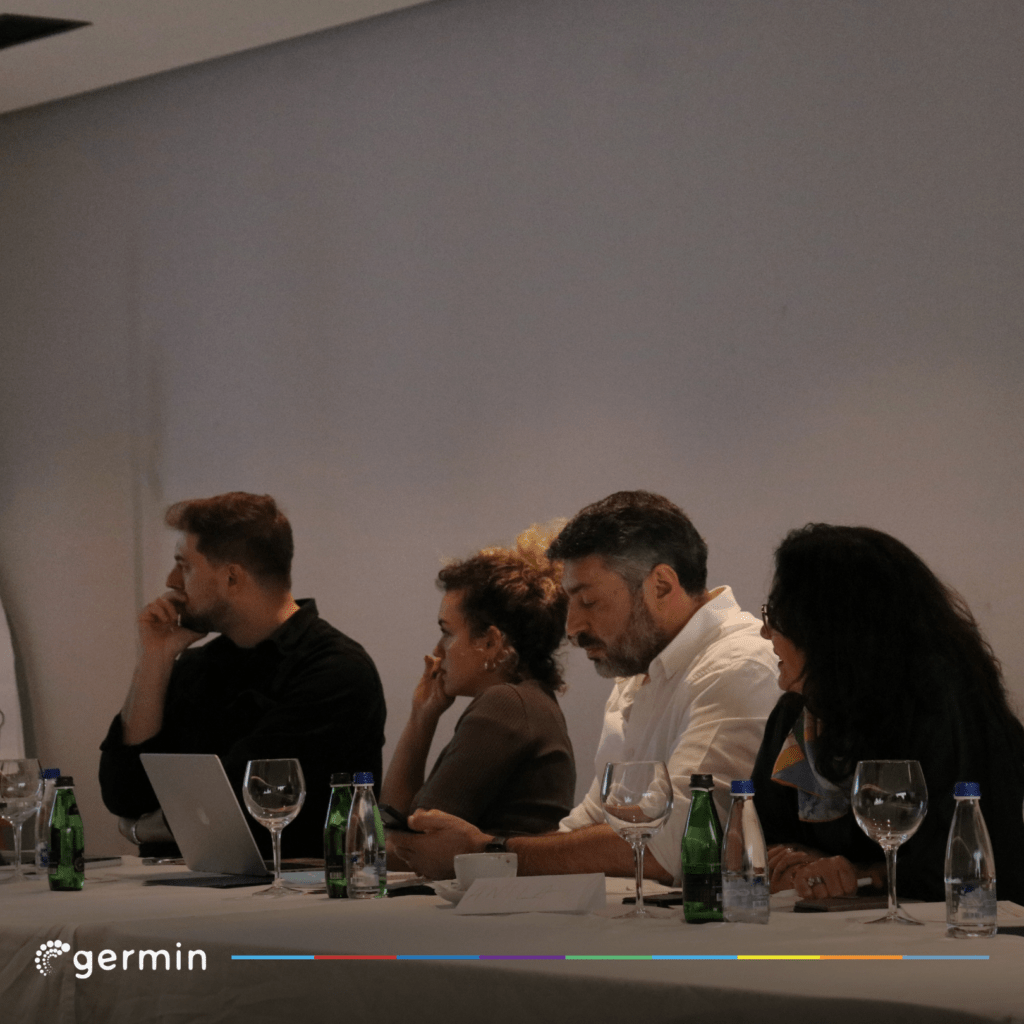
GERMIN, through this workshop, further strengthens its commitment to building bridges between the diaspora and their homeland, while simultaneously enhancing working conditions and developing strategies that amplify the voice and impact of the Albanian diaspora.
